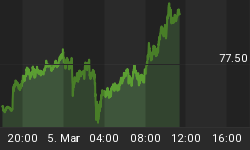How many IMF officials does it take to change a light bulb?
As you probably read, the International Monetary Fund announced they would proceed with selling the remaining 191.3 tonnes of gold from the 403.3 tonnes planned. The money is to be used for lending to poor countries. Lending implies the money will be repaid, which, in the case of the IMF, is a joke that isn't funny. But that's a topic for another day.
The IMF stated that sales will be conducted in the open market, which is interesting because until now, gold has only been made available to central banks. While the IMF remains open to central banks buying some of the gold, sales will be conducted "in a phased manner over time" to avoid disruptions to the open market.
So, will IMF sales depress the gold price? Well, remember the price rose with the first sale, when it was announced India was buying 200 tonnes of the 212 for sale. But that was an offtake deal, not an open market sale, so the question is legitimate.
One way to look at it is this: global mine production was 80.9 million ounces in 2009, so the IMF's 6.7 million ounces could be a market-jolting 8.2% addition if dumped all at once. And an 8.2% load would indeed upset a market if we were talking about strawberries or anything else that people buy only for the purpose of consuming.
But most gold isn't bought for the purpose of using it up. It's bought for the purpose of holding it. So the relevant comparison for the IMF's 6.7 million ounces isn't annual mine production. Instead, we should compare it to the world's existing stockpile of gold, which is roughly 2 billion ounces. The IMF sale would add just 0.3% to global inventory - hardly a market trasher.
Further, we've been down this road before with the IMF. When they sold gold in the 1970s, the price dropped upon the announcement of the sale, but then rose when actual sales took place.
And the dirty joke is this: when the IMF sold gold in the 1970s, it marked a bottom in the price. The late Jerome Smith advised always betting against the government: "When they're unloading an asset, it's time to buy."
The IMF provides some very cushy jobs for the right people, along with a perpetual series of exquisitely catered conferences for the politically connected and politically correct. These people are not exactly known for being the brightest economic decision-makers. However noble their cause, the fact that they're selling at all in the current environment, given the enormity of the monetary crisis that will only worsen as time goes on, tells me I want to be doing the opposite.
And that's why the answers to my light bulb joke are as follows:
How many IMF officials does it take to change a light bulb?
None. Doesn't gold glow in the dark?
One, but only if the ladder is padded.
Two. One to screw it in and one to screw it up.
Three, but nobody can find them.
Four, to form a panel to discuss which way to turn the bulb.
Five. One to change the bulb and four to buy the wine to celebrate.
Nine, to provide a quorum to vote on incandescent vs. fluorescent.
Eleven. One to hold the bulb, and ten to turn the house.
All of them. But only after dinner at L'Arpège (the most expensive restaurant in Paris).
While we're convinced gold is headed much higher, is the recent correction over, signaling its time to jump in? Get our answer in the new issue of Casey's Gold & Resource Report, which you can try risk-free here...
















